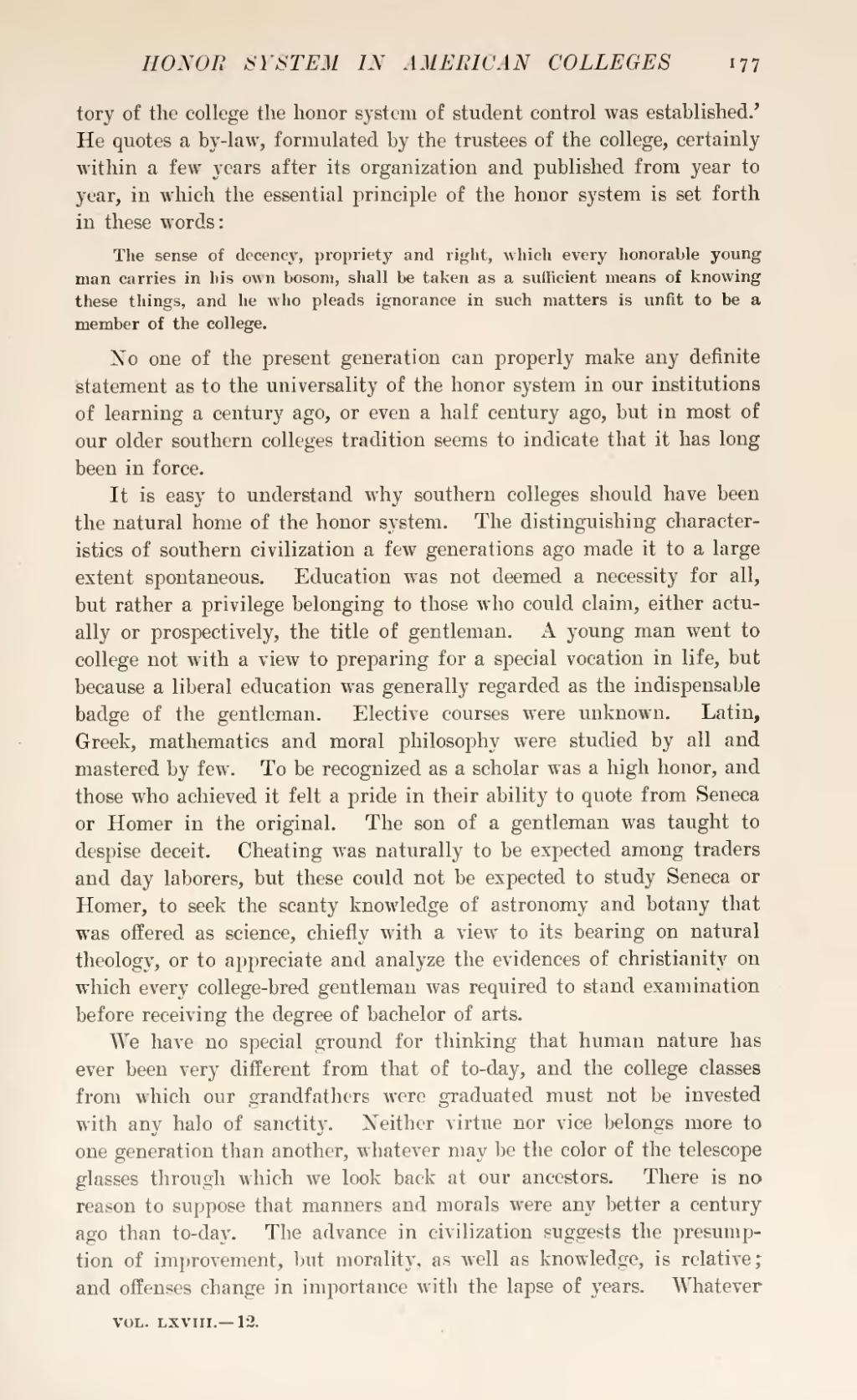tory of the college the honor system of student control was established.' He quotes a by-law, formulated by the trustees of the college, certainly within a few years after its organization and published from year to year, in which the essential principle of the honor system is set forth in these words:
No one of the present generation can properly make any definite statement as to the universality of the honor system in our institutions of learning a century ago, or even a half century ago, but in most of our older southern colleges tradition seems to indicate that it has long been in force.
It is easy to understand why southern colleges should have been the natural home of the honor system. The distinguishing characteristics of southern civilization a few generations ago made it to a large extent spontaneous. Education was not deemed a necessity for all, but rather a privilege belonging to those who could claim, either actually or prospectively, the title of gentleman. A young man went to college not with a view to preparing for a special vocation in life, but because a liberal education was generally regarded as the indispensable badge of the gentleman. Elective courses were unknown. Latin, Greek, mathematics and moral philosophy were studied by all and mastered by few. To be recognized as a scholar was a high honor, and those who achieved it felt a pride in their ability to quote from Seneca or Homer in the original. The son of a gentleman was taught to despise deceit. Cheating was naturally to be expected among traders and day laborers, but these could not be expected to study Seneca or Homer, to seek the scanty knowledge of astronomy and botany that was offered as science, chiefly with a view to its bearing on natural theology, or to appreciate and analyze the evidences of Christianity on which every college-bred gentleman was required to stand examination before receiving the degree of bachelor of arts.
We have no special ground for thinking that human nature has ever been very different from that of to-day, and the college classes from which our grandfathers were graduated must not be invested with any halo of sanctity. Neither virtue nor vice belongs more to one generation than another, whatever may be the color of the telescope glasses through which we look back at our ancestors. There is no reason to suppose that manners and morals were any better a century ago than to-day. The advance in civilization suggests the presumption of improvement, but morality, as well as knowledge, is relative; and offenses change in importance with the lapse of years. Whatever

